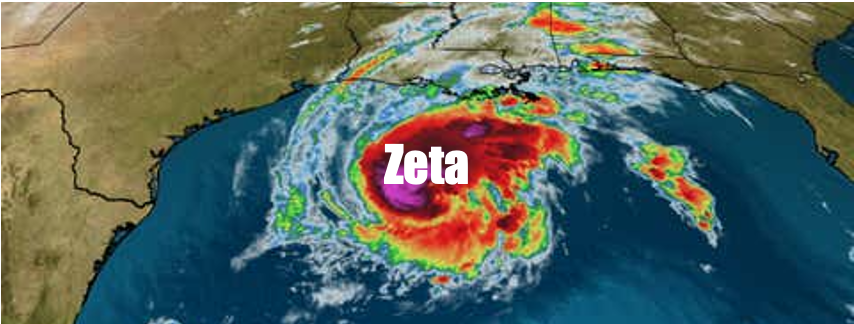Blog Layout
International Claims Fallacy
Jeff Esper
How to Deal With Global Property Claims

The world is getting smaller. Companies of every size do business around the globe. This poses unique business interruption risks both direct and indirectly. Recent examples include the devastating flooding in Thailand and the Tohuku earthquake and subsequent tsunami in Japan. Property claims can be hard enough when they are at home - adding distance and language differences can make things more time consuming and add expense to resolving a claim. There is good news though - international claims are not that much different than any other claim. Experience is the key.
In 2013, Ingersol Rand suffered an $11M+ flood loss at a manufacturing plant in Shanghi, China. We calculated the property damage and business interruption loss amounts. “Utilizing their proprietary MyClaim portal rwhMyers worked extremely well with our local China management team, the loss adjustor and the insurance company's forensic accounting team to effect settlement within 3 months of the end of the loss itself,” said Kevin Lang, Director of Risk Management.
Having prepared many international claims like this, we know where the perceived challenges exist and how to manage through them, such as:
The Language
The insurance world speaks English. The first question we are asked about preparing international claims is whether or not we have someone who speaks the language. While this might have some benefit, it is far more important that someone understand the process and the numbers. Most companies, based in English speaking countries or other, can agree on English as a common language. On the rare occasion where a translator is necessary, this is all that is needed - someone who can translate - it is not necessary to have a practitioner who is fluent. You are much better off with a practitioner who knows what they are doing on a property claim.
The Location
The time and cost to fly consultants around the world is a real concern. Often policyholders will be inclined to hire less experienced professionals because of their proximity to the loss. This is a mistake. For the most part, information can be transferred electronically and explained over the phone. For companies based here with operations abroad, all information necessary to prepare a claim can be transferred through headquarters.
There are certain elements of a property claim where on site assistance is needed (physical inventories, building or equipment inspections, etc.) This type of specific technical assistance can be coordinated with the insurance company and local resources. Similar to accounting information, the results of these physical inspections can be documented and sent back home. There is usually no need to send someone from here to there.
As real examples, we prepared and settled dozens of claims around the world without setting foot on the loss site. As described, this is accomplished by sharing information electronically and communicating by phone, web meeting, web sharing portal, etc. The alternative of using local, less experienced professionals would undoubtedly add confusion to the process. Experience is the most important requirement in preparing any property claim.
Don’t get the wrong impression - we have travelled all over the world for our clients when asked. Sometimes the parties involved require it or the loss just simply demands it. However, this type of travel is less frequent now. If required, travel should be scheduled to maximize productivity to reduce the amount of travel needed. Again, experience and expertise allow this to be accomplished most efficiently.
The Local Policy
Local policies that cover losses abroad may have some differences from the the global policy. If these differences affect recovery, in general the master policy can be invoked to make up any differences. You will want to prepare the claim according to the local policy but be aware of differences. Your broker should be able to help sort out any differences and the reasons for those differences.
The interpretation of the local policies by local adjusters can create confusion. Just be aware the the intent of the local policies should fit in with your global program - to indemnify for the loss.
Summary
To sum up, losses happen all over the world. Just because you are in New York and the loss is in Paris, France, does not mean you should treat it any differently than if it were in Paris, Texas. Language and location are not a barrier in this day and age. If you compromise expertise for proximity to the loss location, in the end it will cost you more. Look for a team that has had success managing international claims throughout the process leading to results for clients. As Kevin Lang says, “I highly recommend rwhMyers and their professional services for loss accounting needs anywhere around the globe.”
Insights Worth Sharing

By Jeff Esper
•
July 21, 2021
Making a business interruption claim is more than just an accounting exercise. It requires a good strategy, a thoughtful process and perhaps most of all, patience. These lessons come from experience and the team at RWH Myers has earned it from decades of preparing BI claims. Though this topic is of the philosophical nature, it is just as important as the details behind a business interruption calculation. So let’s dive in and see what you really need to make a BI claim. Strategy Every loss is different. You can’t apply the same game plan and the same approach to every claim. You have to assess the situation and all its parts to devise a specific workable strategy. Experience will help ensure your strategy is appropriate for the situation, but the claim will take on a life of its own. The initial loss assessment is derived from the loss information such as what happened, the timeline of events, the impact to operations and how long it will take to get back to normal. As forensic accountants, we will look at the entirety of the situation and dissect it from every angle to figure out the full scope of loss and then determine the best approach to measuring and supporting the claim. We will also anticipate how the claim will be adjusted and plan for arguments against the claim. Taking the time to develop a proper strategy will pay off at every stage of the claim process. Process Once you understand the situation and have designed an effective strategy, you can lay out a process to get to the desired result. The process starts off with identifying and assembling the team to execute the plan. The claim will require data from various sources and input from key internal experts to provide insights as to the impact on operations, both upstream and downstream. The process also includes managing claim adjustment, from setting the timeline to handling requests for information. During the process, your claim preparer will work to keep all phases of the claim moving forward whether with data gathering or insurer feedback. Claims tend to start out with a high level of attention, but it is common to lose momentum. Simply put, a well-defined process will keep the claim moving, limiting distractions and roadblocks. Patience Patience doesn’t equate to conceding to a lengthy and arduous process. It’s just the opposite. By definition, it means, “quietly and steadily persevering or being diligent, especially in detail or exactness.” It is important to understand that certain parts of the claim take time to develop, and that time is critical to ensuring a thorough and well thought out claim presentation. For example, taking your time in the beginning of the process to lay out the foundational elements of the claim will avoid obstacles that may delay claim settlement and the amount recovered. It’s best to set expectations early and commit to the process. Again, practicing patience will expedite the claim process and improve the outcome. You can rely on the experience of your forensic accounting team to lead that effort. So, you see, it’s not all about the numbers. There is more to the intangibles than you may have thought. Every claim has its own unique challenges. You should be prepared for anything and everything. Again, preparing a claim is just as much strategy, process, and patience as it is the technical elements of claim preparation.

By Jeff Esper
•
October 29, 2020
Property damage insurance claims are among the most infrequent for corporate policyholders, but this year Louisiana has suffered through a record number of Hurricanes. When catastrophe strikes, recovering insured losses essential to rebuild and resume operations. Effected policyholders will need expert help to evaluate, organize and document their claim to present to insurers. Forensic accountants that devote their practice to preparing claims for policyholders have every day experience just as adjusters and auditors do, so it is certainly to your advantage to hire a firm of experts to represent your interests throughout the property damage and time element claim process. Though the specific insurance claims and the policyholders may change, the vital steps to recovery remain the same. One thing both sides agree on is that the claim process goes smoother when the policyholder is well prepared for demands of a claim from start to finish. The partners at RWH Myers prepared a detailed guide to assist policyholders in preparation for claim recovery. It is designed to serve as a resource and a framework for the claim process and includes the following sections: Establish Appropriate Accounting Methodology: Provides guidance and an organizational framework for post-loss activities, establishing specific accounts to capture the loss. Property Damage Expense Categories: Explains the types of expenses that may be included in each category of coverage and the documentation required for these costs. Claim Preparation Objectives and Overview: Identifies objectives for the claim preparation process, and provides a conceptual framework for achieving them. What is Covered: Examines the direct and indirect exposures to loss that are typically encountered, and provides guidelines for determining whether specific types of property damage losses are covered under the policy. Claim Preparation Procedures: Suggests timetables for the submission of inventory, property damage, and discusses the format and content of standard claim submissions. Audit and Settlement Guidelines: Discusses the procedures undertaken by the insurers adjusters and experts, and provides an overview of the settlement process. Click here to download the full guide.
© Copyright 2023 | All Rights Reserved | Sigma7 RWH Myers


